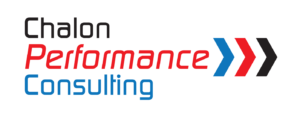10 Significant Changes that Businesses Must Adapt To

Global consulting firm McKinsey has identified ten significant shifts that organizations must address, including increasing speed and resilience, finding a balance between in-person and remote work, making way for AI, tailoring employee value propositions, building institutional capabilities, matching top talent to high-value roles, self-aware and inspiring leadership, making meaningful progress on diversity, equity, and inclusion, investing in mental health interventions, and boosting efficiency.
According to their recent study, only half of respondents believe their organizations are well-prepared to anticipate and react to external shocks, and two-thirds see their organizations as overly complex and inefficient. Companies can gain significant advantages over others by bouncing forward quickly from serial crises. McKinsey has shared inspiring stories and best practices from companies of different sizes and industries that have adapted to recent economic and operational disruptions to forge a new path for the modern organization.
- Organizations are embracing remote work at an unprecedented rate due to the COVID-19 pandemic. This has led to a 22% increase in remote work adoption globally, with 70% of the workforce working remotely at least once a week.
- Diversity, equity, and inclusion (DEI) is becoming a business imperative, with 80% of employees stating that they would consider leaving their job if they felt their employer was not committed to DEI. Additionally, companies with diverse leadership teams see a 36% increase in profitability.
- The speed of technological innovation is accelerating, with 85% of the jobs that will exist in 2030 not yet being created. This means organizations need to prioritize upskilling and reskilling their workforce to prepare for the jobs of the future.
- The rise of the gig economy is continuing, with 36% of the US workforce being gig workers. This trend is expected to continue, with 50% of the workforce expected to be comprised of gig workers by 2027.
- Employees are demanding more flexibility and work-life balance, with 80% of employees stating that they would choose a job with a flexible work arrangement over a job that did not offer one.
- The traditional hierarchical organizational structure is evolving, with 89% of organizations having adopted or planning to adopt a flatter management structure. This is in response to the need for greater agility and the desire for more employee autonomy.
- The role of HR is shifting from a transactional function to a strategic one, with 60% of HR leaders saying that they want to be seen as strategic business partners within their organizations.
- Sustainability and corporate social responsibility (CSR) are becoming increasingly important to employees and consumers, with 81% of consumers stating that they would be more likely to purchase from a company that prioritizes sustainability.
- The need for data-driven decision-making is growing, with 53% of companies saying that they use data analytics to make better business decisions.
- Mental health and well-being are emerging as critical concerns for organizations, with 68% of employees saying that the pandemic has negatively impacted their mental health. Companies are responding by implementing mental health and well-being initiatives, with 82% of organizations planning to increase or maintain their investment in employee mental health programs.
At CPC we help our clients deal with shifts like these with timely and effective solutions. Let’s discuss.
Adapted from: McKinsey

